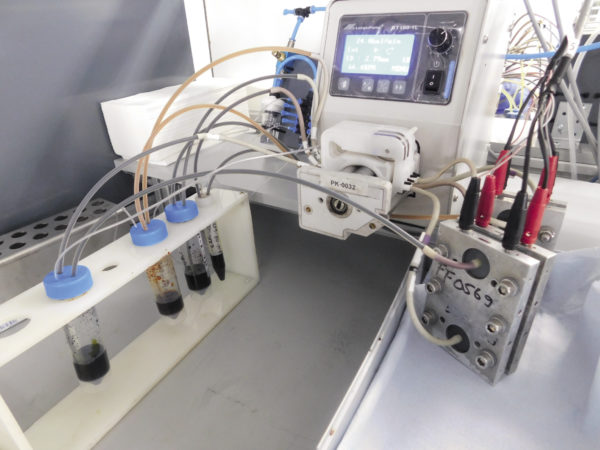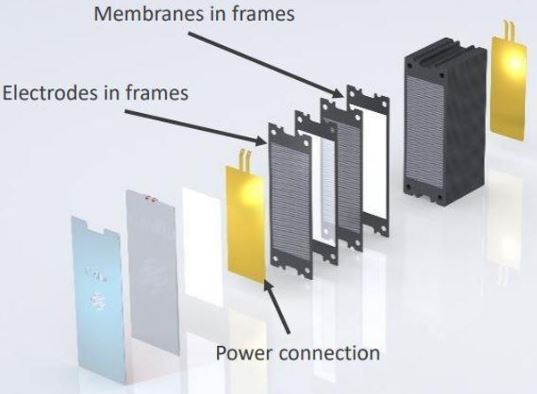An international consortium led by UK-based maritime technology company MSE international is developing a storage technology for applications in commercial ports that could be used for the supply of electricity to visiting vessels and in-port assets such as cranes and port vehicles.
“Our BlueStor storage concept may also offer balancing services, including reserve power and demand turn-up, to electricity network operators or electricity aggregators,” a spokesperson from the company told pv magazine, adding that the intermittent nature of the electricity demand in ports requires long-duration energy storage and management solutions.
The organic redox flow battery is currently under development by UK specialist Swanbarton Ltd, which will be responsible for battery engineering and construction as well as associated controls and interfaces. Houlder Ltd, a London-based marine and offshore engineering and clean technology company, is designing the battery platform and port/vessel interfaces.

CMblu
The electro-chemistry for the batteries will be supplied by German battery manufacturer CMBlu, which was among the winners of the 2018 pv magazine Annual Award for its organic flow battery tech. Their storage system is based on high-performance energy storage molecules that are entirely organic.
The material used – lignin – can be sourced as a by-product from pulp mills. It is filled into two separate tanks and combined for a biochemical reaction in a special unit. By the company’s account, the material is organic, non-flammable, non-explosive, and can live through more than 10,000 charging cycles. The flow battery system has a multi-cell stack design and is only really suitable for stationary storage applications, but it is easily scalable to the gigawatt region.
MSE International has also revealed that the consortium was recently awarded funding by the UK Department for Business, Energy and Industrial Strategy under Longer Duration Energy Storage (LODES) initiative. “Demonstration of feasibility will support application for a subsequent Phase 2 project that would build and operate a pre-commercial prototype organic flow battery,” the company said in a statement. “This will demonstrate supply of electricity to visiting cruise ships when at berth in Portsmouth International Port. It will also demonstrate the capability to procure, at times of low demand, the energy to be supplied to these vessels.”
This content is protected by copyright and may not be reused. If you want to cooperate with us and would like to reuse some of our content, please contact: editors@pv-magazine.com.




2 comments
By submitting this form you agree to pv magazine using your data for the purposes of publishing your comment.
Your personal data will only be disclosed or otherwise transmitted to third parties for the purposes of spam filtering or if this is necessary for technical maintenance of the website. Any other transfer to third parties will not take place unless this is justified on the basis of applicable data protection regulations or if pv magazine is legally obliged to do so.
You may revoke this consent at any time with effect for the future, in which case your personal data will be deleted immediately. Otherwise, your data will be deleted if pv magazine has processed your request or the purpose of data storage is fulfilled.
Further information on data privacy can be found in our Data Protection Policy.